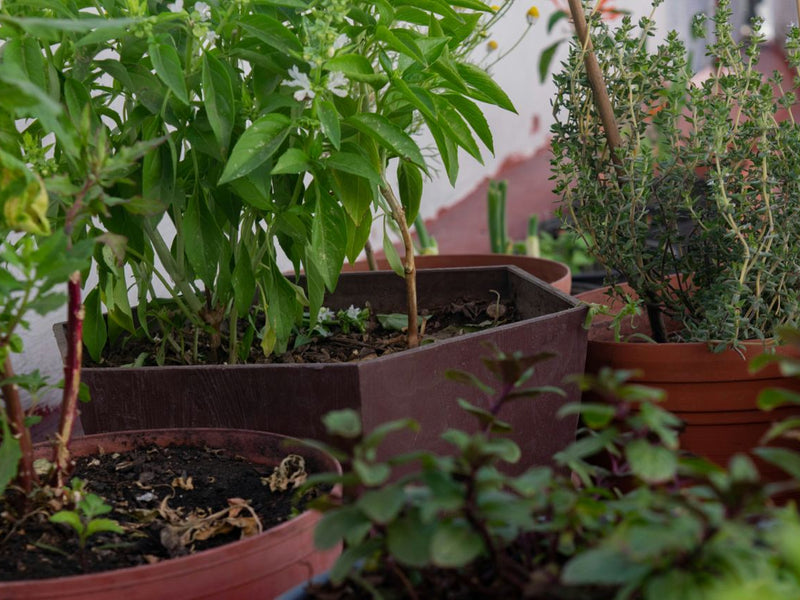There's a feeling of fulfilment about growing your own vegetables and herbs. Vegetables purchased from the market contain chemicals. This leaves people constantly searching for ways to avoid those chemicals. If you love the farm-to-table concept, why not join the movement and learn how to create your organic garden?
If you've been following our blogs, you already know about organic farming, – the natural way of growing food, free from harmful chemicals. This method not only keeps the soil healthy and fertile but also protects the environment. You will be happy to know that you too can start your own organic garden.
What is Organic Gardening?
Organic gardening refers to cultivating vegetables and fruits without using chemical fertilizers, pesticides, or other synthetic chemicals. Instead, it relies on natural methods to nourish and protect plants. In simple words, it involves gardening with natural methods and materials to promote healthy, sustainable plant growth.
Organic Gardening Tips
Choose what to grow
When planning an organic garden, decide whether you want quick results or long-term growth. Pick a good spot for your garden and choose plants that match the season. For short-term plants, you can grow things like tomatoes, spinach, mint, basil, parsley, and cucumbers. You can choose rosemary, oregano, or carrots for the long term.
Soil Matters
When getting the soil ready for growing vegetables naturally, use organic fertilizers like cow dung, vermicompost, compost, mustard cake, neem cake, perlite, or vermiculite. Avoid using any chemical substances. Organic compost and manure release nutrients slowly, helping plants develop stronger, deeper roots, which can boost the nutrient content of your fruits and vegetables.
Weed Control
To keep organic vegetables safe from pests and diseases, use natural insecticide soap, neem oil, vinegar, and other organic fungicides. You can also make a pesticide at home using turmeric powder or a mixture of ginger, garlic, and chili.
Seed Selection
When choosing seeds, look for ones labeled as "organic" on the package. If you can't find organic seeds at your local nursery or hardware store, you can buy them online from trusted garden companies. Use starter plants that are certified as organically grown, because commercially grown plants are often treated with chemicals.
Design the Layout
When setting up your garden, give your plants some breathing room, but not too much. Planting them close together shades the ground, keeping weeds away and helping the soil hold onto water, which means less watering for you. But remember, too close is not good either. Plants need some space to breathe or they might get sick.
Watering
Watering your garden is essential, especially in the harsh Indian climate. Morning is the best time to avoid burning your plants. Your plants need about 2 inches of water each week, including any rain they get.
Rotate Your Plants
Growing the same crops in the same spots every year can harm the soil and cause problems. To keep your soil healthy, plant different types of crops in each area every year. This can also help reduce weeds, because some plants, like carrots, have lots of leaves that block sunlight, making it harder for plants to grow.
Growing your own plants offers a multitude of benefits. From enjoying the satisfaction of nurturing life and savoring the taste of homegrown vegetables to reducing your carbon footprint and supporting sustainable practices, the rewards are plentiful.
If you don't have enough time for gardening, just explore our website!
Here at Nirvana Organic, we offer a range of organic products that have numerous health benefits.




